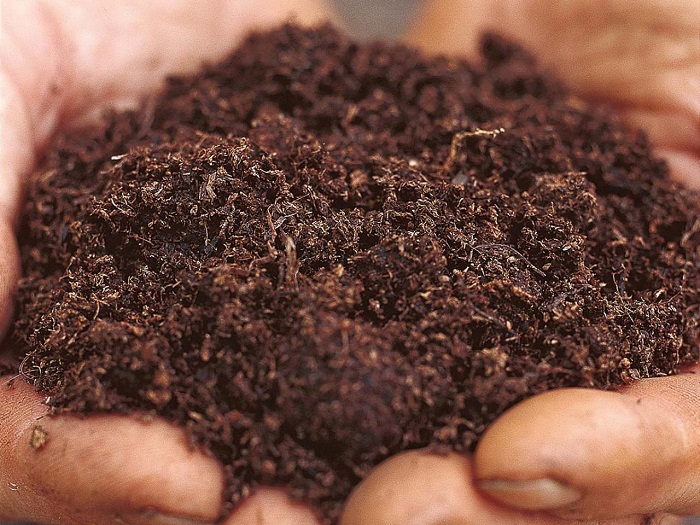I knew six of my eight great-grandparents—all six lived into their late eighties or early nineties. I knew all four of my grandparents—three of the four lived into their nineties, and one still lives at 91. Were my ancestors health nuts? Hardly. In fact, they were hard working folks who grew up on small farms in the Midwest.
 They produced much of their own food when they were young, (especially during the Great Depression) and got plenty of exercise farming, raising animals, and sometimes working a second job in town. They slept well, often tired from a hard day’s work.
They produced much of their own food when they were young, (especially during the Great Depression) and got plenty of exercise farming, raising animals, and sometimes working a second job in town. They slept well, often tired from a hard day’s work.
They ate red meat, eggs, and drank raw milk. They cooked with butter and (gasp!) lard. They picked fruit from their own trees and maybe even sampled a cask of cherry wine now and then.
Things they didn’t eat were MSG, high fructose corn syrup, sugar, or soy. At the end of their lives they ate a lot of refined white flour, but during their formative years, it was most likely the cheaper (at that time) whole wheat.
So what can we take away from this? That my family has good genetics and tends to live long lives? Possibly, or maybe we should reexamine what we have been told about nutrition by a government that likes to exert control over our lives, a government whose agencies are funded and influenced by the corporations they are supposed to regulate.
The first step towards changing the way you eat should be to gather information. An excellent resource on this topic is the Weston A. Price Foundation. One of their goals is to educate the public as to the importance of nutrient dense foods to health and well being.
Sally Fallon Morell, today’s guest on Off the Grid Radio, is one of the co-founders of the Weston A. Price Foundation, has written an excellent book on the subject called Nourishing Traditions. This book details how traditional foods like meat and fats are good for us and actually help protect the body from disease.
Sally’s book and the Foundation’s website are a treasure trove of information about several of the main points of contention between what the government thinks we should eat and what traditionalists say is better for us.
Raw Milk
An issue that many consumers are fighting for is the right to eat what we want. Nowhere is this issue more pointed than when it comes to raw milk.
Proponents claim raw milk is a perfect food and that pasteurization destroys beneficial microbes and enzymes that protect the body from disease. Research seems to back this up to a point, especially in the area of asthma.
Detractors try to bring the specter of E. coli and other unsavory diseases to the fore that are killed by pasteurization. They will cite a CDC report that states that raw milk accounted for 36% of the 4,400 milk-related outbreaks from 1993-2006.
Interestingly enough, Ron Lemke of Organic Pastures Dairy (who had to recall raw milk in 2006 because of an E. coli outbreak) says that outbreak was eventually traced to spinach and had nothing to do with the raw milk. The same thing happened in November 2011 when Organic Pastures was forced to recall its milk and was later found not to be the source of the outbreak.
Mr. Lemke goes on to point out that during the same time period as the 4,400 milk-borne illnesses, 45 million other food-borne illnesses were reported. That is approximately a 1:10,000 ratio showing just how safe dairy actually is to consume.
Our government allows us to consume tobacco which has been proven to kill an estimated 440,000 people a year by the same CDC. Alcohol accounts for about 42,000 deaths a year from drunken driving, and another 22,000 from medical problems induced by it.
When we compare that to 4,400 people in 13 years being made ill by dairy products (compared to what alcohol and tobacco kill every single year), any sane person should see allowing people to buy raw milk is a no-brainer.
Discover How To Fill Your Diet With All the Phyto-Nutrients You Will Ever Need!
Soy
The foundation has a listing of 72 studies dating back to 1939 showing the adverse effects of soy in the diet. Soy has inundated the American food chain, mostly in an effort to prop up Big Agriculture, since the soybean is an excellent crop for monoculture.
They are even pushing soy infant formulas when soy has been shown to cause a myriad of problems, including hypothyroidism and even DNA damage. Only a money grubbing industry would push something like this on unsuspecting parents.
The soy eaten in Asian cultures is largely ingested as a fermented curd or condiment. It would seem that soy is not the wonder food it has been touted to be.
MSG
A study has shown that MSG (monosodium glutamate) can lead to an inflamed liver, obesity, and Type 2 diabetes. MSG is a flavor enhancer used in most processed foods and has been the disputed source of Chinese Restaurant Syndrome for more than 40 years.
As it stands, MSG does not have to be listed as an ingredient on food labels.
Healthy Fats
The Foundation points out that the right kinds of fats can be healthy, nutritious, and just plain good. Fats to be avoided include anything hydrogenated and vegetable oils made from corn, soy, canola, or other GMO crops. Polyunsaturated fats shouldn’t be used for cooking in high temperatures, and foods fried in these oils should be avoided. Frying in coconut oil, extra virgin olive oil, lard, or butter is actually more healthy and better for you than cooking with vegetable oils.
However, it looks like the government finally got one right by telling us to avoid all trans fats.
I have barely touched on processed foods, GMO, bovine growth hormone (BGH), or antibiotics in our animal feeds. Our ancestors didn’t have to deal with any of this and they were better off for it.
If you want to make a difference in your overall health you need to check out the Weston A. Price Foundation’s website to find a local chapter. Then start talking to your elected officials like I plan to.
You are the one ultimately responsible for what you and your family eat. Research, read your labels, and make the best choices possible.
©2012 Off the Grid News










